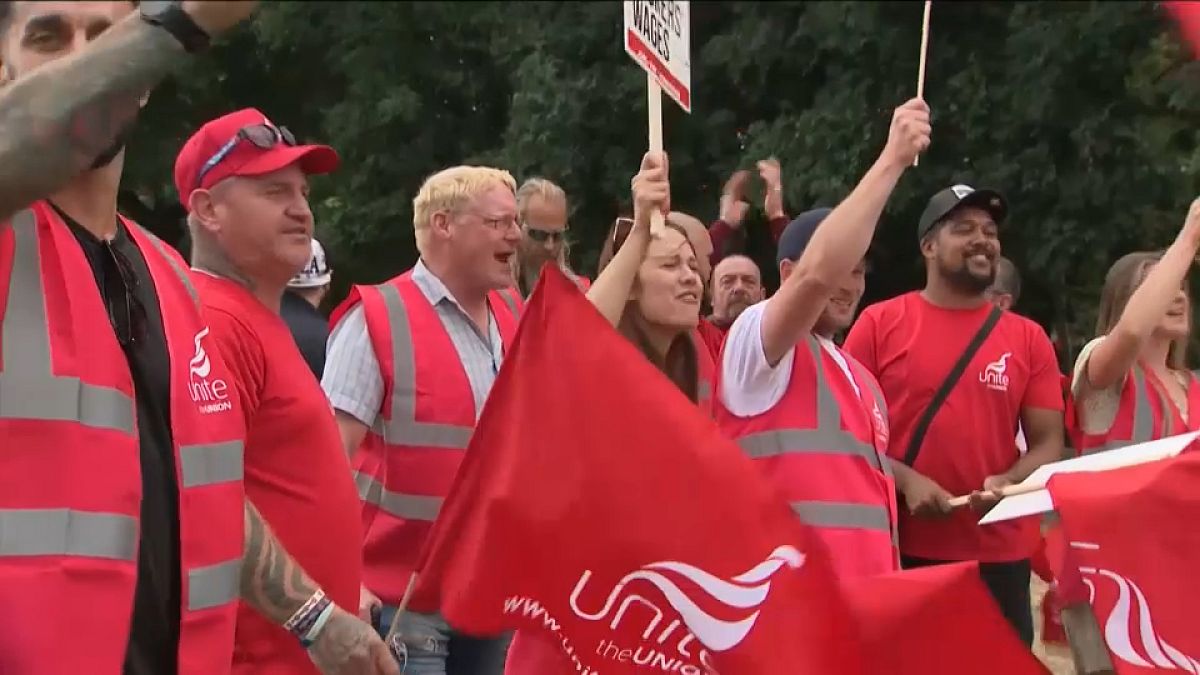Inflation is rising at a higher rate in the UK compared to much of the rest of Europe, and with further scheduled transport strikes set for next week, others are also threatening industrial action.
As the cost of living bites, workers across the UK are continuing to strike, demanding higher wages to combat rising inflation.
According to the trade union Unite, some 1,600 bus drivers in London walked out during the August bank holiday weekend between 27 and 28 August, following the first bus strike in the capital on the previous weekend.
London bus drivers say they walked out because their employers have failed to make a reasonable pay offer. The company is offering a pay increase of 3.2% in 2022 and 4.2% next year, but the true inflation rate (RPI) currently stands at 11.8%.
"It's nothing to do with a national strategy or anything like that, it is something that has happened here at a local level and it reflects what's happening elsewhere because people all over the country, I think, are feeling the same way", regional officer for Unite Miles Hubbard said.
"That's why it appears to be coordinated because people everywhere are feeling the same way and coming to the same conclusion.
"Enough is enough, we are not going to take this anymore", he added.
“Industrial action is across the board in different industries, different sectors because everybody is feeling the financial impact," Michelle Braveboy, another regional officer from Unite Union, told Euronews.
"It’s a unique situation and I think it’s only going to ramp up as we go forward", she said.
With winter just around the corner, workers are determined to continue the fight until a resolution is found.
“It’s either keep warm or eat, one of the two and we want both and that’s why we’re doing this," said bus driver Abdul Hanafi.
John Lansdown was sacked from his job at P&O ferries last March when an 800-person workforce was replaced by cheaper agency staff.
The chef by trade, who is now suing P&O seeking damages of £76 million (€88.9m), believes the unions must stand firm.
“The race to the bottom has well and truly begun, and trade unions are absolutely right to be proactive when it comes to protecting terms and conditions.
The government has let P&O ferries get away with sacking 800 seafarers earlier this year”, he adds.
Asked whether the RMT (Rail, Maritime and Transport union) helped, Lansdown told Euronews they did come out afterwards with support, ”but it was too late then -- the horse had already bolted.”
None of the unions which backed strikes over the month of August have scheduled strikes for September, however, RMT's general secretary Mick Lynch says more strikes are "very likely".
